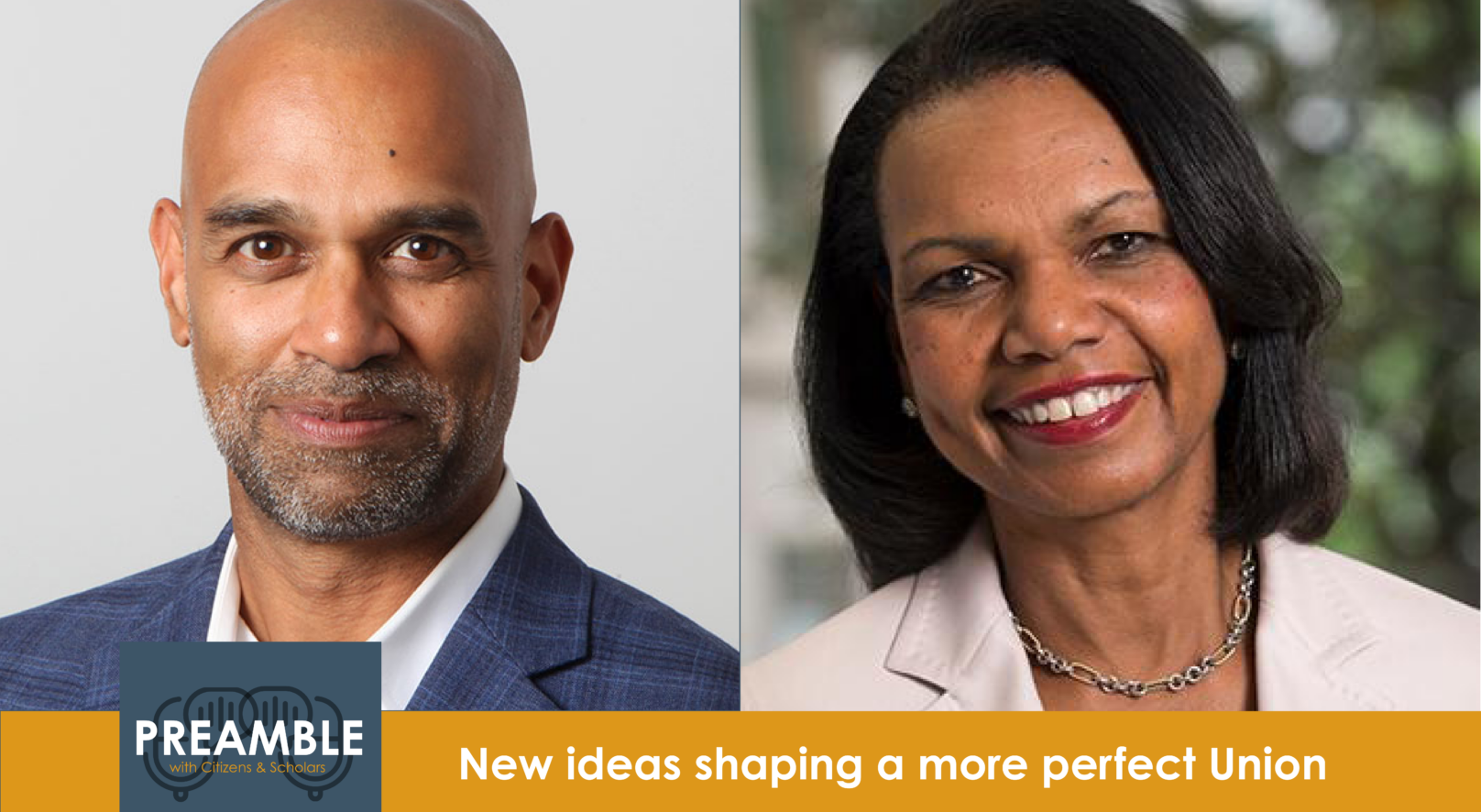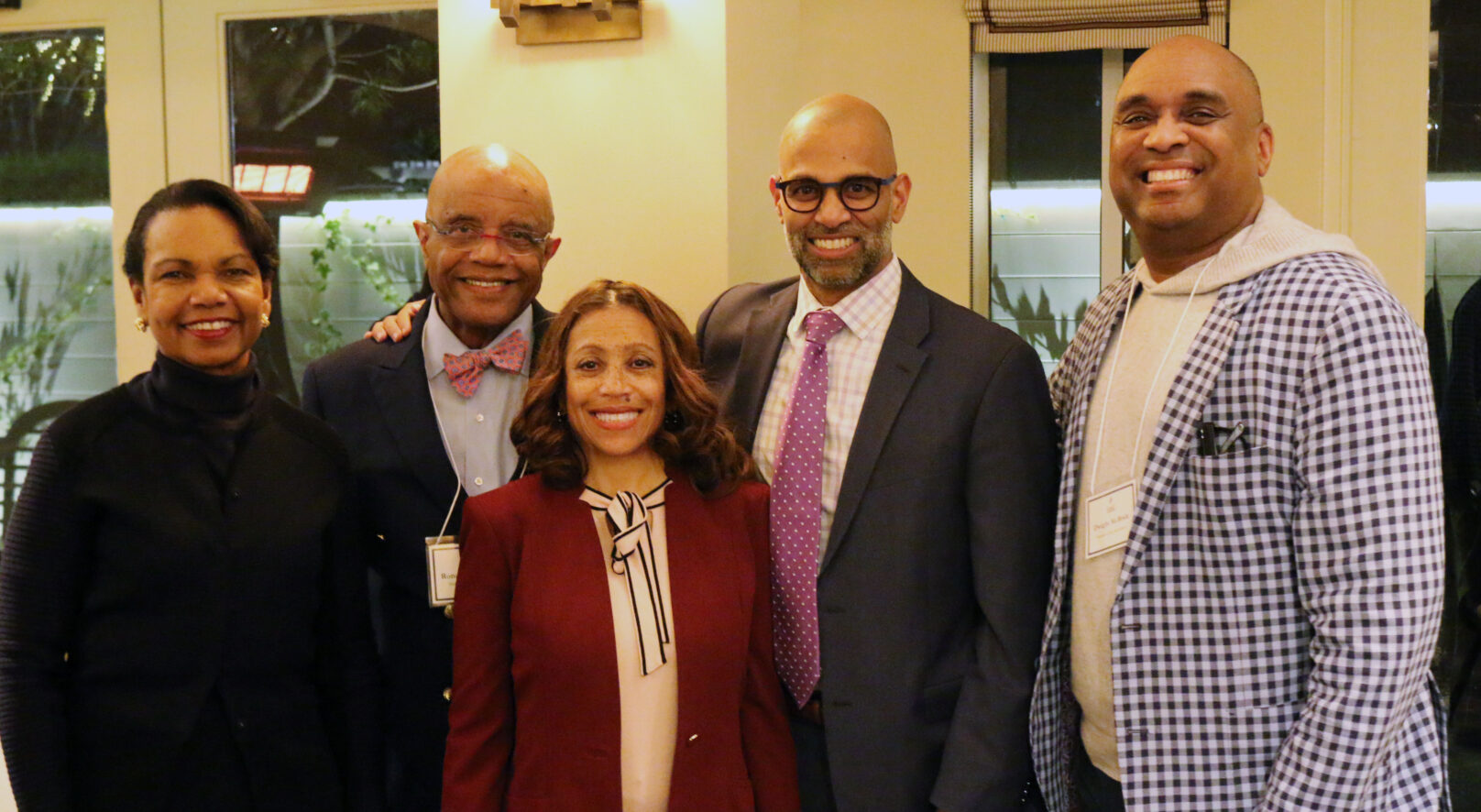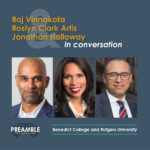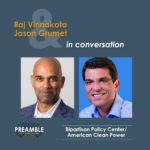Preamble: Condoleezza Rice
March 6, 2023
Share

In this urgent moment for the nation, we can strengthen democracy—together. In Preamble, Citizens & Scholars president Raj Vinnakota sits down for 15-minute conversations with diverse thought leaders—across traditional divides—on the new ideas shaping a more perfect Union.
Here, Raj is in conversation with Secretary Condoleezza Rice, Director of the Hoover Institution. Below is an edited excerpt from the conversation.
Raj Vinnakota: As someone who spent a life in higher education and national leadership, what do you see as higher education’s role in preparing young people as effective citizens?
Secretary Condoleezza Rice: One of my late colleagues, Gabriel Almond, co-authored with Sidney Verba a great book called The Civic Culture about what makes it possible for people to coexist in what is actually a very difficult enterprise called democracy. It is an important question to consider.
We always ask: “Why do democracies fail?” Instead, we should ask: “Why do democracies succeed?” It is a really hard thing that we ask people to do. We ask people to trust their beliefs, their values, their desires, and their interests to these abstractions we call institutions: the constitution, elections, and representative government.
We ask people to put aside what human beings have done for centuries, which is to fight it out in the streets or to be commanded or ruled by those who have divine right. Just a couple of centuries ago we started to say, “Instead, let’s participate in this thing called democracy.” Through our participation, we’re signaling our trust in these institutions.
So, what is higher education’s role in preparing effective citizens? Our role is to help the young person who has come out of high school and provide them an education that will make them understand their civic responsibility. To understand where that responsibility came from, its history, its challenges, and to be committed to being a part of it.

RV: How can civic education and civic learning evolve to be more comprehensive and include a fuller range of perspectives?
CR: In higher education, it starts with students understanding the institutions. That means getting them to slow down a little bit. What we’re trying to do at Stanford is get students to slow down and appreciate that history and human beings are complex. One of the problems we’re having at the moment is that we’re trying to de-complexify history. History is very complex, and it is true that Thomas Jefferson was both an orator of great principles on liberty and civic values, and he was a slave owner.
Part of our job in higher education must be to help students understand that they are going to encounter a lot of views in our democracy – many that they will not like, many that will make them uncomfortable, and they must learn to navigate that. Higher education should inform and challenge students, but its objective is not to make students comfortable. This can be done while still making students feel valued and respected.
If higher education can provide opportunities for our students to understand our history, our institutions, where they came from and why they are what they are, we will have done our job. It will prepare them for whatever job they may pursue, and it will also leave them with a sense of dedication to citizenship and to civic responsibility.
Explore More Preamble
Stay Engaged
Get More News
Join our mailing list to get more news like this to your mailbox.
Support Our Work
Help us invest in the talent, ideas, and networks that will develop young people as effective, lifelong citizens.
Ways to Support Us
